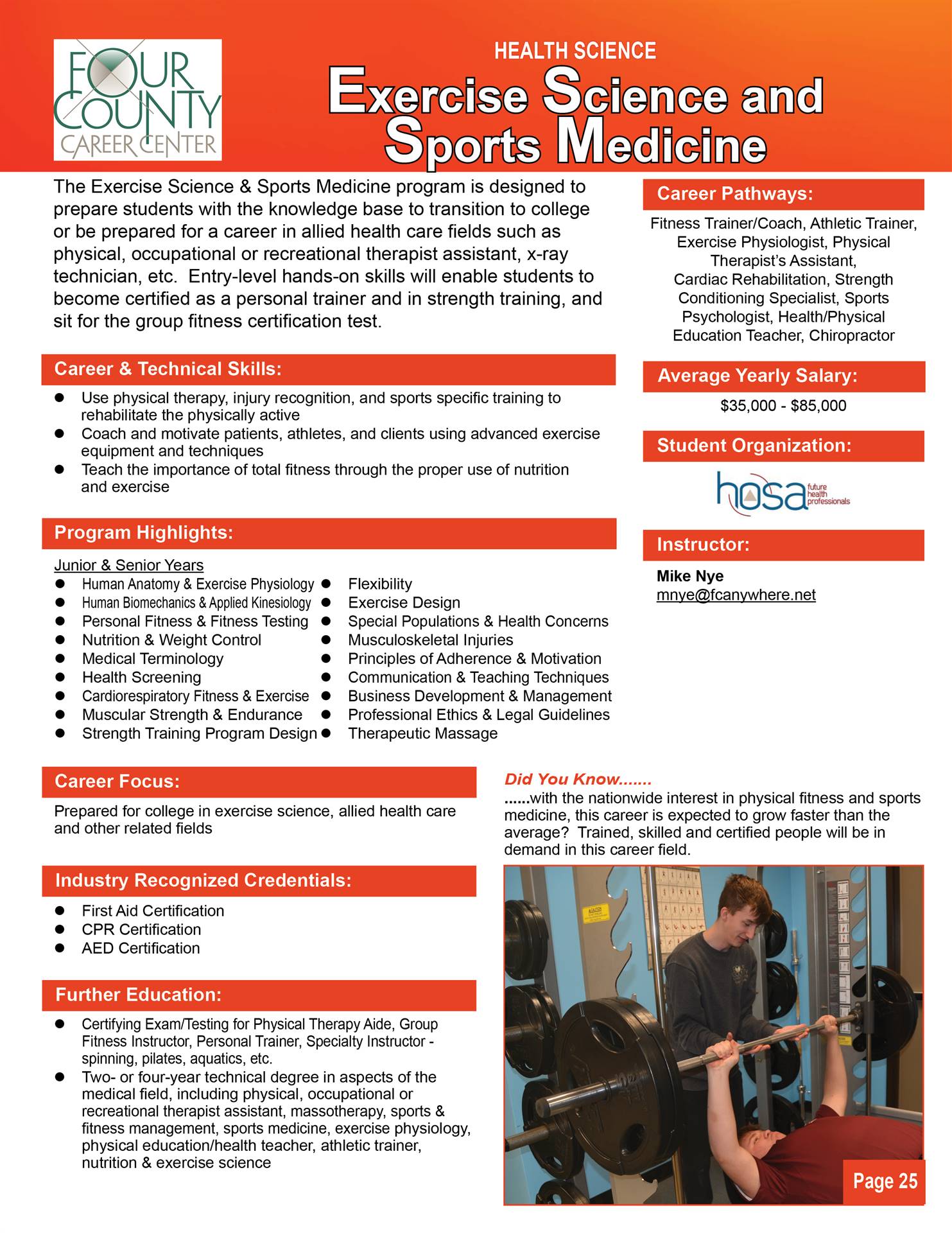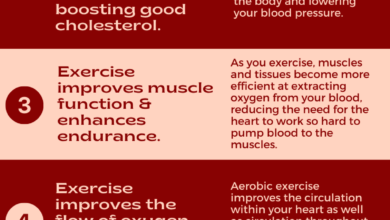
What is the Difference between Exercise Science And Sports Medicine: Key Insights
Exercise Science and Sports Medicine often get mixed up. Both focus on the body and movement.
But, they are not the same. Understanding the difference helps you choose the right career or treatment. Exercise Science studies how the body moves and works during exercise. It looks at muscles, heart, and lungs. Sports Medicine, on the other hand, deals with injuries and health problems in athletes.
It helps them recover and perform better. Knowing these differences can guide your path in fitness, health, or medical fields. Let’s dive deeper into what sets these two fields apart.

Credit: www.facebook.com
Defining Exercise Science
Exercise science is the study of how the human body responds to physical activity. This field combines biology, chemistry, and physics. It helps us understand the effects of exercise on our bodies. Exercise science also explores how to improve physical fitness and health.
Scope And Focus
The scope of exercise science includes various aspects of physical activity. It ranges from basic movement to high-level athletic performance. The focus is on understanding the body’s response to exercise. This includes muscle function, cardiovascular health, and metabolic changes.
Common Areas Of Study
Common areas of study in exercise science include biomechanics and physiology. Biomechanics looks at the mechanics of movement. Physiology studies how exercise affects the body’s systems.
Another key area is nutrition. This involves understanding how diet impacts physical performance. Researchers also study psychology. They explore how mental factors influence exercise and performance.

Credit: www.fourcounty.net
Defining Sports Medicine
Sports Medicine is a specialized field that focuses on physical fitness. It deals with preventing and treating injuries related to sports and exercise. This area of medicine combines various disciplines to help athletes perform at their best. Experts in Sports Medicine work with all kinds of athletes. From professionals to weekend warriors, they ensure everyone stays healthy and active.
Scope And Focus
The scope of Sports Medicine is broad. It covers injury prevention, diagnosis, treatment, and rehabilitation. Specialists aim to help athletes recover quickly and safely. They also work on enhancing athletic performance.
The focus is on the musculoskeletal system. This includes bones, muscles, and joints. Sports Medicine professionals also look at how the body moves. They study biomechanics to prevent injuries. Nutrition and mental health are also important aspects of this field.
Common Areas Of Practice
Common areas of practice in Sports Medicine include treating acute injuries. This can be sprains, strains, and fractures. Professionals also deal with chronic conditions. Tendonitis and stress fractures are common among athletes. They use various treatments. These can range from physical therapy to surgery.
Another area is rehabilitation. This helps athletes return to their sport after an injury. It involves strength training, flexibility exercises, and conditioning. Sports Medicine experts also provide advice on preventing future injuries. They offer guidance on proper techniques and equipment.
Sports Medicine is not just for athletes. It can benefit anyone who is physically active. The goal is to keep everyone moving and healthy.
Educational Pathways
Exercise science focuses on understanding body movements and improving fitness. Sports medicine deals with injury prevention and treatment for athletes.
Choosing between Exercise Science and Sports Medicine depends on your career goals. Both fields offer unique educational pathways. Understanding these can help you make an informed decision.
Exercise Science Degrees
Exercise Science focuses on the study of movement and fitness. Degrees in this field include a Bachelor of Science (B.S.) in Exercise Science. This program covers anatomy, physiology, and biomechanics. Students also learn about nutrition and exercise psychology.
Many programs offer hands-on experience through internships. These can be in fitness centers, rehabilitation clinics, or research labs. Graduates often pursue careers as personal trainers, wellness coaches, or fitness directors.
For advanced roles, a master’s degree might be required. Graduate programs delve deeper into research and advanced training techniques. Doctoral programs are available for those interested in academic or high-level research careers.
Sports Medicine Degrees
Sports Medicine focuses on preventing and treating sports-related injuries. A common starting point is a Bachelor of Science (B.S.) in Sports Medicine. This program includes courses in anatomy, physiology, and kinesiology. Students also study injury prevention, treatment, and rehabilitation.
Many students continue to a master’s or doctoral degree. These advanced degrees often combine clinical practice with research. Programs may include internships in hospitals, clinics, or sports teams.
To become a sports medicine physician, you need a medical degree (M.D. or D.O.). This requires medical school and a residency in sports medicine. Licensing and certification are also necessary for practice.
Both fields offer rewarding careers. Your choice depends on your interests and career goals.
“`
Career Opportunities
Exploring career opportunities in Exercise Science and Sports Medicine offers a variety of rewarding paths. Each field provides unique roles and responsibilities, catering to different interests and skills.
Jobs In Exercise Science
Careers in Exercise Science focus on improving health and fitness through physical activity. Professionals in this field often work in diverse environments.
- Personal Trainer: Help clients reach fitness goals through exercise plans.
- Fitness Instructor: Lead group exercise classes in gyms or studios.
- Exercise Physiologist: Develop fitness programs for people with chronic illnesses.
- Strength and Conditioning Coach: Enhance athletic performance through strength training.
- Wellness Coordinator: Plan and manage corporate wellness programs.
Jobs In Sports Medicine
Careers in Sports Medicine focus on preventing and treating injuries related to sports and exercise. Professionals in this field work closely with athletes and active individuals.
- Sports Physician: Diagnose and treat sports-related injuries.
- Athletic Trainer: Provide immediate care and rehabilitation for injured athletes.
- Physical Therapist: Assist in recovery and improving mobility post-injury.
- Sports Nutritionist: Advise athletes on diet to enhance performance.
- Orthopedic Surgeon: Perform surgeries to repair injuries in bones and muscles.
| Job Title | Field | Key Responsibilities |
|---|---|---|
| Personal Trainer | Exercise Science | Create and monitor fitness plans |
| Sports Physician | Sports Medicine | Diagnose and treat injuries |
| Exercise Physiologist | Exercise Science | Design programs for chronic illnesses |
| Athletic Trainer | Sports Medicine | Care and rehab for athletes |
Key Skill Sets
Understanding the key skill sets in Exercise Science and Sports Medicine can help you decide which career path to pursue. Both fields focus on improving physical performance and health. However, they require different skills and knowledge. Let’s break down the essential skills for each profession.
Skills For Exercise Science Professionals
Exercise Science professionals need to understand how the human body moves. They study biomechanics, which involves the mechanics of body movements. They also need to know about physiology to understand how exercise affects the body. Nutrition knowledge is crucial for creating effective diet plans. They must also be skilled in designing exercise programs tailored to individual needs. Communication skills are vital for motivating and instructing clients. Lastly, they should be adept in using fitness technology and equipment.
Skills For Sports Medicine Professionals
Sports Medicine professionals focus on preventing and treating sports-related injuries. They need a strong understanding of anatomy and physiology. Diagnostic skills are essential for identifying injuries and conditions. They must also be proficient in therapeutic techniques like massage and physical therapy. Knowledge of pharmacology is important for understanding medications and treatments. They need excellent problem-solving skills to create effective treatment plans. Interpersonal skills are crucial for working with athletes and other medical professionals.

Credit: www.stu.edu
Overlap And Differences
Understanding the overlap and differences between Exercise Science and Sports Medicine is crucial. Both fields aim to enhance physical performance and health. Yet, they serve distinct purposes and involve different responsibilities. Let’s delve into the similarities and differences.
Similarities In Both Fields
Both Exercise Science and Sports Medicine focus on improving physical health. They study how the body responds to physical activity. Professionals in these fields work to prevent injuries. They also help in rehabilitation. They aim to optimize physical performance.
- Focus on physical health
- Study body responses to exercise
- Work on injury prevention
- Aid in rehabilitation
- Optimize physical performance
Distinct Roles And Responsibilities
Despite their similarities, Exercise Science and Sports Medicine have distinct roles. Exercise scientists study the effects of exercise. They design fitness programs. They often work in research or fitness settings.
Sports Medicine professionals, on the other hand, treat injuries. They diagnose and manage sports-related health issues. They work in clinics, hospitals, or sports teams. Their primary focus is on medical care.
| Field | Primary Focus | Work Settings |
|---|---|---|
| Exercise Science | Study of exercise effects | Research labs, fitness centers |
| Sports Medicine | Treatment of injuries | Clinics, hospitals, sports teams |
Real-world Applications
Understanding the real-world applications of Exercise Science and Sports Medicine can help us see their unique benefits. Both fields play essential roles in improving physical health and performance. They have distinct applications that cater to various needs and goals.
Exercise Science In Practice
Exercise Science focuses on understanding how the body responds to physical activity. It involves creating fitness programs that improve strength, endurance, and flexibility. Fitness trainers use Exercise Science to tailor workouts for individuals. This ensures that exercises match personal goals and capabilities.
In schools, Exercise Science helps design effective physical education curricula. These programs encourage students to stay active and develop healthy habits. In corporate settings, wellness programs based on Exercise Science can reduce employee stress and boost productivity. Rehabilitation centers also use Exercise Science to help patients recover from injuries. By using targeted exercises, they can regain mobility and strength.
Sports Medicine In Practice
Sports Medicine focuses on preventing and treating sports-related injuries. It combines medical and therapeutic techniques to help athletes stay healthy. Doctors in Sports Medicine diagnose and treat injuries like sprains, fractures, and concussions. They provide rehabilitation plans to ensure a full recovery.
Sports Medicine professionals work with athletes to enhance their performance. They offer advice on nutrition, hydration, and injury prevention. This helps athletes achieve their best without compromising their health. Sports teams often have Sports Medicine experts on staff. They provide immediate care for injuries during games and training sessions.
In schools and colleges, Sports Medicine supports student-athletes. They ensure students can participate in sports safely. This field also benefits recreational athletes. It helps them maintain fitness and prevent injuries during their activities.
Frequently Asked Questions
What Is Exercise Science?
Exercise science studies how physical activity impacts health and performance. It covers physiology, biomechanics, and nutrition.
What Does Sports Medicine Focus On?
Sports medicine focuses on preventing, diagnosing, and treating sports-related injuries. It involves medical professionals trained in sports-related healthcare.
How Do Exercise Science And Sports Medicine Differ?
Exercise science focuses on fitness and performance, while sports medicine addresses injury prevention and treatment.
Can Exercise Science Help In Injury Prevention?
Yes, exercise science can help in injury prevention by improving strength, flexibility, and overall fitness.
Conclusion
Exercise Science and Sports Medicine serve different purposes. Exercise Science focuses on physical activity. Sports Medicine focuses on injury treatment and prevention. Both fields are crucial for athletes. They work together to improve performance and health. Understanding their differences helps in choosing a career path.
It also aids in making informed health decisions. Whether you pursue one or the other, both contribute to overall well-being. Stay active, stay informed, and prioritize your health.





